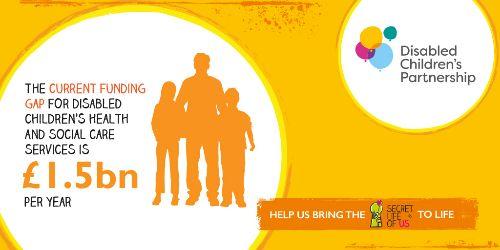
Published on: 16/07/18
Tonight’s Panorama programme will highlight the consequences of the £1.5 billion funding gap in disabled children’s services.

Published on: 16/07/18
This deficit has been revealed by research published today by the Disabled Children’s Partnership (DCP).
Panorama: Fighting for my Child, which is due to be aired on BBC One at 8.30pm (16 July), will uncover the reality for families who are missing out on services and support which enable their children to do things other children take for granted.
There are over one million disabled children in the UK, 33% more than a decade ago. Yet fewer disabled children than ever before are currently getting support. The research shows there is a funding gap in disabled children’s services which means tens of thousands are missing out on vital help.
Dalton Leong, Chief Executive of The Children’s Trust, said: “Tonight’s Panorama will highlight the consequences of this – families at their wits end having to go to court to fight for vital support and dealing with a system with limited and dwindling resources. That’s why we are urgently calling on the government to plug the £1.5 billion gap – just 0.2% of total government spending – to ensure disabled children and their families have a decent quality of life.”
DCP’s research carried out by Development Economics, found that there is a £1.1 billion shortfall in funding for health services for disabled children and £433 million extra needed for social care.
Emma Garbutt, who is mum to 13-year-old Millie, is backing DCP’s calls for the government to plug the funding gap. She said she can empathise with the families’ features on Panorama.
She added: “You see stories about disabled children in the news and you assume that there’s help out there for these families, that’s what I always used to think anyway.
“But it’s not until your child becomes unwell and has severe disabilities that you realise there’s nothing there; support for disabled children is almost non-existent.”
She been fighting for three years to get support for Millie, who suffered a brain tumour at the age of ten. As a result, Millie is paralysed on one side and uses a wheelchair. She also has a tracheostomy and requires ventilation at night to give her enough oxygen.
Millie is unable to talk and uses an iPad to communicate. Yet her mum Emma receives almost no help on a day to day basis to support Millie with her health and social care needs.